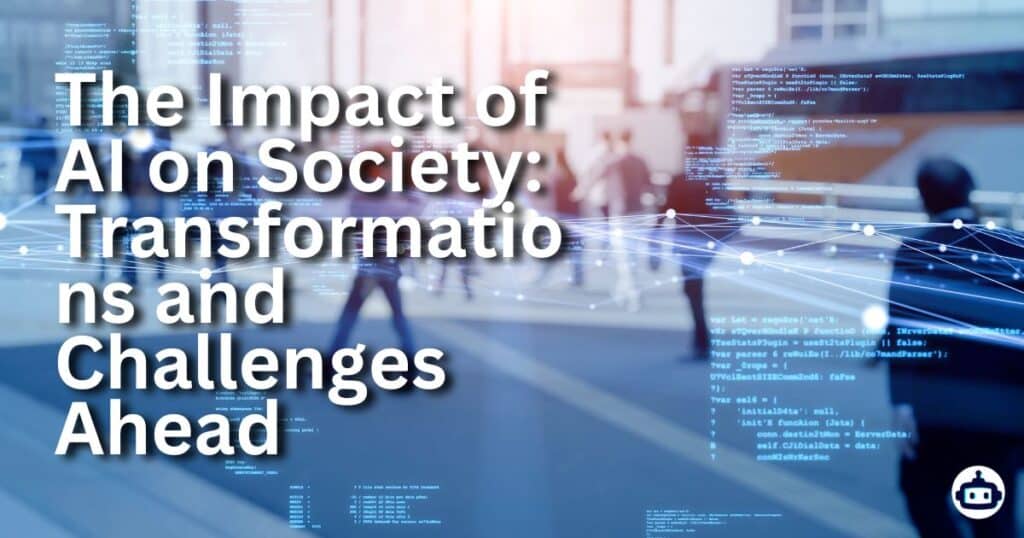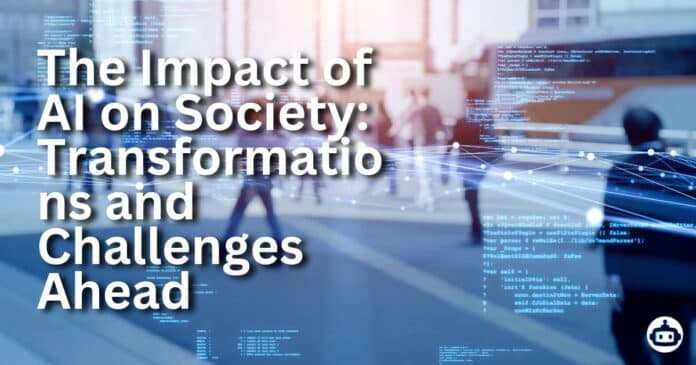
Artificial Intelligence (AI) refers to the simulation of human intelligence processes by machines. This includes learning, reasoning, and self-correction. The impact of AI on society is profound, as it reshapes industries, enhances productivity, and alters daily life. AI systems can process vast amounts of data with speed and efficiency.
They support decision-making, automate routine tasks, and create new opportunities for innovation. However, their integration into societal frameworks raises questions about ethical implications and accountability.
Brief Overview of Historical Developments in AI
The journey of AI began in the mid-20th century. Pioneers like Alan Turing proposed concepts that laid the groundwork. The significant milestones include the creation of early computing machines and the development of algorithms capable of learning.
In the 1980s, a resurgence occurred with expert systems that mimicked human decision-making. The late 20th and early 21st centuries saw accelerated advancements, such as neural networks and deep learning models, allowing machines to improve from experience. Today’s AI technologies, such as natural language processing and computer vision, reflect a culmination of decades of research and development.
The impact of AI on society continues to evolve with every breakthrough, offering both promise and complexity.
Importance of Understanding AI’s Impact on Society
Understanding the impact of AI on society is crucial for multiple reasons. Awareness allows for informed discussions about potential benefits and risks. Such knowledge helps guide policymakers in creating regulations that ensure technology serves humanity.
Moreover, understanding AI fosters accountability in its deployment. Society needs to navigate the nuances of privacy concerns, job displacement, and bias in algorithms.
By engaging with the implications of AI, individuals, organizations, and governments can harness its potential responsibly. In turn, this understanding promotes a balanced approach to innovation that prioritizes ethical considerations.
The Transformations Brought by AI in Various Sectors
Healthcare Innovations Through AI
AI has made significant strides in healthcare, fundamentally changing how patient care is delivered. Medical professionals utilize AI algorithms to analyze vast amounts of medical data. These algorithms assist in diagnosing diseases more accurately and at earlier stages. For instance, AI tools can analyze medical imaging scans, allowing for timely detection of conditions such as cancer.
Beyond diagnostics, AI enhances personalized treatment plans. Algorithms consider individual patient data, leading to more effective interventions tailored to specific needs. AI-driven virtual health assistants provide crucial support by reminding patients of medication schedules and addressing their health inquiries.
AI’s Role in Education and Personalized Learning
The impact of AI on society is evident in the education sector. AI applications enable personalized learning experiences for students. Educational platforms utilize AI to adjust the learning pace based on individual performance. This ensures that each student receives the right level of support according to their unique learning styles.
AI also facilitates administrative tasks for educators. It streamlines grading systems and offers insights into student progress, allowing teachers to focus on enriching the learning environment. AI chatbots engage students outside the classroom, providing immediate answers to questions, and encouraging continuous learning.
Revolutionizing Business Operations and Workflows
In the business world, AI transforms operations and enhances efficiency. Companies incorporate AI technologies to automate repetitive tasks. This automation reduces human error and frees employees to tackle more strategic challenges. AI-driven analytics tools enable businesses to glean insights from large data sets, aiding in informed decision-making.
Customer service experiences also benefit from AI advancements. Chatbots and virtual assistants handle inquiries in real-time, improving customer satisfaction. Organizations leverage AI for inventory management and predictive maintenance, optimizing resources and reducing costs.
The Societal Benefits of AI
Improving Efficiency and Productivity
The impact of AI on society is evident in various industries where automation enhances efficiency. Businesses leverage AI to streamline operations. Tasks that traditionally required significant human effort can now be performed rapidly and accurately. AI algorithms analyze data quickly, helping organizations make informed decisions that improve productivity.
Manufacturing industries benefit immensely from AI-driven machinery that operates with precision. These advancements enable higher output at lower costs, benefiting both companies and consumers.
Enhancing Quality of Life
AI technology plays a crucial role in improving the quality of life for many individuals. Virtual assistants help users manage their daily schedules, making tasks more manageable. Health care systems utilize AI to deliver better diagnostic accuracy, leading to improved patient outcomes.
Smart home devices enhance convenience and security for homeowners. These applications not only simplify daily chores but also contribute to personal safety and comfort.
Driving Economic Growth and New Opportunities
The impact of AI on society extends to economic growth, creating numerous job opportunities in burgeoning sectors. As businesses integrate AI technology, they require skilled professionals for development and maintenance.
Startups and established companies alike explore innovative solutions through AI, driving competition and leading to new market trends. The evolution of AI generates fresh avenues for entrepreneurship, inspiring individuals to develop unique services and products.
Investments in AI research further stimulate the economy. Governments recognize its potential, allocating funds to support technological advancements. Collaborative efforts between private and public sectors enhance the impact of AI on society, propelling it forward.
Challenges and Ethical Concerns of AI Implementation
Job Displacement and Workforce Transformation
The impact of AI on society raises significant concerns regarding job displacement. As automation increases, many traditional roles may become redundant. Industries such as manufacturing, retail, and even professional services are at risk of facing major layoffs due to AI-driven systems. The workforce will need to adapt rapidly to survive.
Upskilling and reskilling initiatives will play a vital role in preparing individuals for new types of jobs. This transformation can potentially create more jobs, but it will require a collective effort from educational institutions, companies, and policymakers. Recognizing the transition and providing support will be crucial for minimizing adverse effects on workers.
Bias and Fairness in AI Algorithms
The impact of AI on society also includes concerns about bias and fairness in algorithms. When AI systems are trained on biased data, they reflect these biases in their decision-making processes. This can lead to unjust outcomes in areas like hiring, lending, and law enforcement. Ensuring fairness involves not just improving data quality but also implementing rigorous oversight.
Developers must prioritize ethical guidelines during AI training. Society must demand transparency to hold AI systems accountable. Continuous assessment will be necessary to address and rectify biases as they emerge.
Privacy and Surveillance Issues
Privacy and surveillance present another challenge amidst AI implementation. As AI systems gather vast amounts of personal data, concerns over user privacy intensify. Data collection methods can lead to invasive practices that compromise individual rights. Striking a balance between innovation and privacy protection is essential.
Regulations must evolve to safeguard citizens while allowing for technological growth. Public awareness regarding data security and privacy will empower individuals to take action. Developing ethical frameworks to guide AI use can contribute to a more equitable society.
The Future of AI and Its Ongoing Impact on Society
Emerging Trends in AI Technology
The impact of AI on society is evident in various sectors. It shapes industries like healthcare, finance, and transportation. AI systems now assist doctors in diagnosing diseases more accurately, predict market trends, and enhance traffic management.
Machine learning algorithms enable automation in manufacturing and optimize supply chains. Natural language processing fosters improved communication between users and devices. These advancements indicate a transition towards a more integrated world where AI plays a significant role in daily operations.
User-driven advancements lead to further innovations, such as personalized experiences in digital marketing and entertainment. Social media platforms utilize AI algorithms to curate content. The growth of intelligent virtual assistants improves productivity and helps streamline daily tasks. The educational field benefits from AI-driven tools that personalize learning experiences.
Preparing for AI Integration in Everyday Life
The impact of AI on society necessitates readiness from all sectors. Individuals must adapt to changing job landscapes due to automation. Skills related to AI and technology will become increasingly valuable. Education systems may need to adjust curriculums to prepare students for future careers in AI-related fields.
Businesses will also face challenges with integration. Investing in employee training ensures teams can leverage new technologies effectively. Staying updated with AI advancements enables organizations to remain competitive. Employees can benefit from learning how to work alongside AI, making the transition smoother.
Role of Policy and Regulation in AI Development
The impact of AI on society raises questions about ethical considerations and regulatory frameworks. Policymakers must develop guidelines that promote responsible AI usage. Regulations should ensure transparency, accountability, and fairness. The engagement of diverse stakeholders in discussions helps to formulate policies that address public concerns.
Laws surrounding data privacy and security are essential. Ethical principles should govern AI development to prevent biases in decision-making. International cooperation may also prove crucial as nations navigate the global implications of AI technology. As AI continues to evolve, proactive measures can shape a future where its benefits are maximized while minimizing potential risks.
Conclusion
Recap of AI’s Transformative Impact on Society
The impact of AI on society is profound and multifaceted. It transforms industries by enhancing efficiency and productivity. Businesses implement AI for data analysis, customer service, and operational optimization. Healthcare benefits from advanced diagnostics and personalized treatment plans. Education shifts towards adaptive learning platforms that cater to individual needs.
AI influences daily life through smart devices and automation. It shapes communication via chatbots and virtual assistants. Furthermore, the creative and entertainment sectors explore new avenues with AI-generated content and gaming experiences. These transformations highlight the positive influence of AI across various disciplines.
Call to Action for Awareness and Preparedness
Raising awareness about the impact of AI on society is crucial. Individuals must understand both its benefits and drawbacks. They should educate themselves about AI technologies and their applications. As AI makes decisions that affect daily life, critical thinking becomes essential.
People should engage in discussions surrounding the ethical implications of AI. They must advocate for transparency and accountability in AI systems. Communities, businesses, and policymakers must collaborate to create frameworks that govern AI use. Preparedness involves actively participating in conversations and initiatives that shape the future of AI technology.
Looking Ahead: Collaboration for Ethical AI Advancement
Future advancements in AI heavily rely on collaboration. Stakeholders must come together to address challenges posed by the impact of AI on society. Ethical frameworks need to be established to guide development and implementation.
Interdisciplinary teams can ensure AI contributes positively to humanity. Technologists, ethicists, and social scientists should work in unison. This collective effort will foster responsible innovation and mitigate risks associated with AI misuse.
The future calls for collective action to make AI an ally rather than an adversary in societal progress. Healthy dialogue and diverse perspectives pave the way for ethical AI development.

